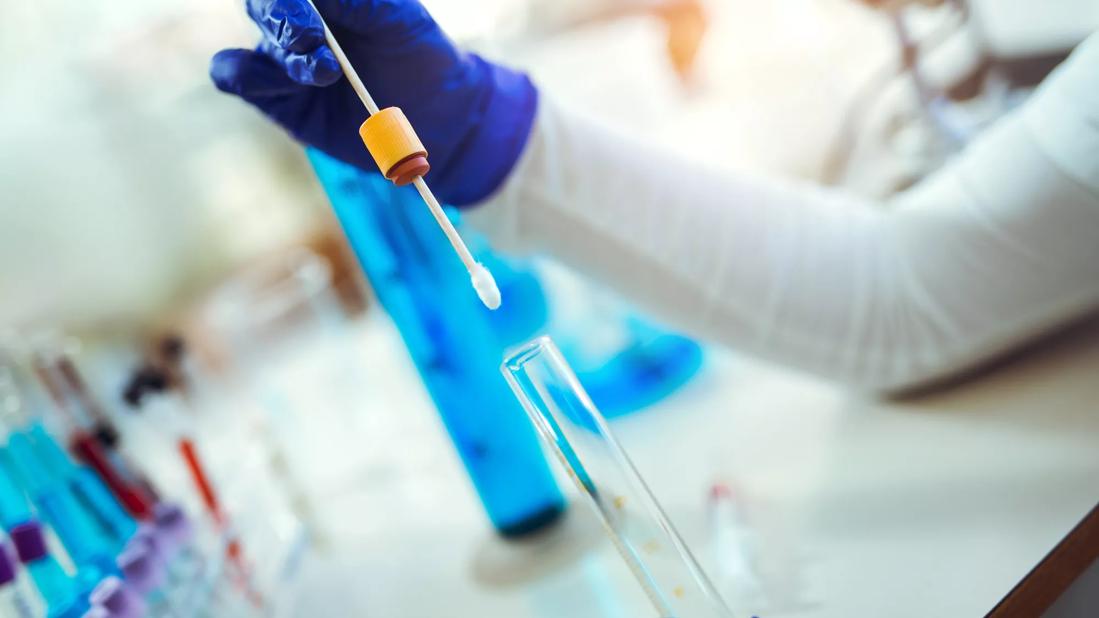Know the pros and cons

Image content: This image is available to view online.
View image online (https://assets.clevelandclinic.org/transform/a9a3a133-2dcb-445f-b458-ec855903152f/GettyImages-871326374_jpg)
How Accurate Are DNA Self-Testing Kits?
DNA self-test kits promise to tell you everything from your ancestry to your genetic predisposition for certain diseases. But when it comes to your health, how much stock should you put in the test results? Can they really help you make important decisions about your healthcare?
Advertisement
Cleveland Clinic is a non-profit academic medical center. Advertising on our site helps support our mission. We do not endorse non-Cleveland Clinic products or services. Policy
Certified genetic counselor Marissa Coleridge says the tests can help reveal a piece of your genetic puzzle. But she doesn’t recommend basing healthcare decisions on them without getting more information and professional guidance.
Working with your doctor or a genetic counselor is the key to understanding the big picture, she says.
Here’s what you should know before you send in your sample.
You can order DNA self-test kits online. They typically contain a saliva collection kit and directions for how to provide a sample.
A laboratory analyzes your DNA from cells in your saliva. The lab looks at your DNA sequence variations to find out if you’re at risk of getting a genetic health condition or being a carrier of such a condition.
Pros
The kits appeal to many people because they are:
They can empower you to take a more active role in managing your health. And that’s not a bad thing, Ms. Coleridge says.
There is even a kit that has FDA approval for testing for certain gene mutations that relate to breast cancer.
“As long as you are following up with your doctor or a genetic counselor, the self-test kits are good conversation-starters,” Ms. Coleridge says. “That way, if you have a concern — even if it’s not a concern you knew you had — you can talk about it with someone qualified to have such a conversation.”
Advertisement
Cons
Health information from self-test kits is not always accurate. False positive results might cause you to feel anxious unnecessarily. False negative results might cause you to dismiss concerns you should take seriously, Ms. Coleridge says.
How can you limit the possibility of inaccurate results? Make sure a CLIA-certified lab does your testing, she says. Clinical Laboratory Improvement Amendments standards help govern how to perform the tests, lab-worker qualifications and quality control.
“There are so many labs out there doing direct-to-consumer testing,” Ms. Coleridge says. Knowing whether testing is performed in a certified lab helps ensure that your results are technically accurate.
Also, keep in mind that result interpretation is not always straightforward.
“Our knowledge of genetic variation is constantly evolving and we do not know the process that (self-test) labs are pursuing when evaluating whether test findings actually disrupt the gene or do not make a difference.” Ms. Coleridge says.
This is why it is so important that people see a qualified provider like a genetic counselor to review the results for the appropriate interpretation, she says.
Whether you have worked with your doctor or genetic counselor or used a self-test kit, you should keep in mind that test results can’t guarantee that you will or won’t end up with a genetic condition, Ms. Coleridge says.
“Genetic testing is just one piece of the puzzle,” she says. “Often, you’re testing for really complex diseases. Heart disease, cancer, diabetes — not only can multiple genes cause these diseases, but lifestyle and environmental factors also play a part.”
The bottom line: If you want to get genetic testing or have testing repeated, it’s best to work with your doctor or a genetic counselor.
When you do, you can gain a more comprehensive understanding of your overall health profile and take steps to minimize any potential risks, Ms. Coleridge says.
Advertisement

Sign up for our Health Essentials emails for expert guidance on nutrition, fitness, sleep, skin care and more.
Learn more about our editorial process.
Advertisement
If you’re of Ashkenazi Jewish descent, these tests are still an important resource
Bleeding is a risk and warrants taking care, but the reward of this lifesaving medication is great
Severe and debilitating headaches can affect the quality of your child’s life
With repeat injections over time, you may be able to slow the development of new wrinkles
Although it can be alarming, it’s normal to experience blood clots during menstruation
Type 2 diabetes isn’t inevitable with these dietary changes
Applying a hot or cold compress can help with pain
Pump up your iron intake with foods like tuna, tofu and turkey